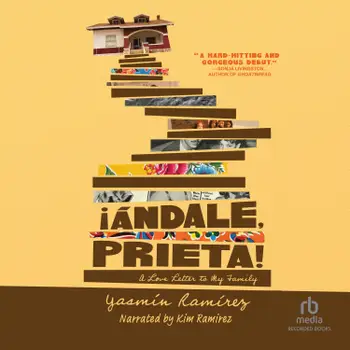When I tell people who don’t speak Spanish what “prieta” means—“dark” or “the dark one”—their eyes pop open and a small gasp escapes. … How do I tell them that now, even after the cruelty of children, “Prieta” means love? That each time “Prieta” fell from my grandmother’s lips, I learned to love my dark skin. My Ita called me Prieta. When she died, she took the name with her.
Yasmín Ramírez spent her twenties feeling lost—working an intensely taxing retail job and turning to bars for comfort. When her beloved grandmother dies, she comes home to El Paso, Texas, where people know how to spell her accented name. As she pulls her life together, she finds comfort in celebrating her Ita, a resilient matriarch who was far from the stereotypical domestic abuelita. Yasmín remembers Ita wistfully singing old Mexican rancheras, her mastectomy scar, the hours they spent watching boxing matches at a dive bar, and of course, Ita’s lesson on how to ball a fist for a good punch. Interviewing her mom and older
sister, Yasmín learns even more about why her Ita was so tough—the abusive men, the lost pregnancies, and the toil of almost literally back-breaking jobs. In time, the writer finds her grandmother calling her forth to live with the same bravery and tenacity: “¡Ándale, Prieta!”
